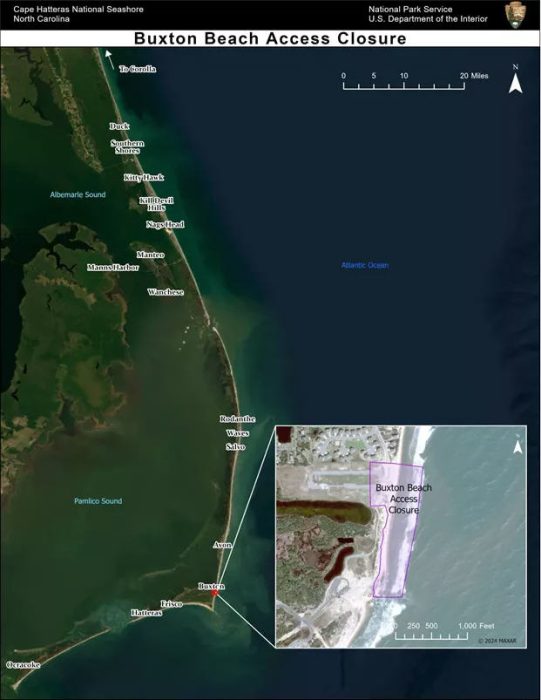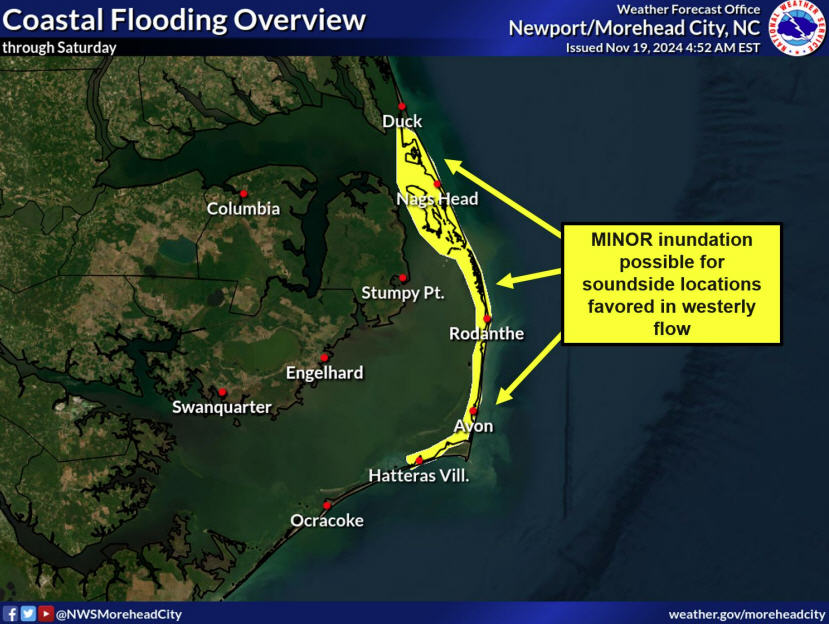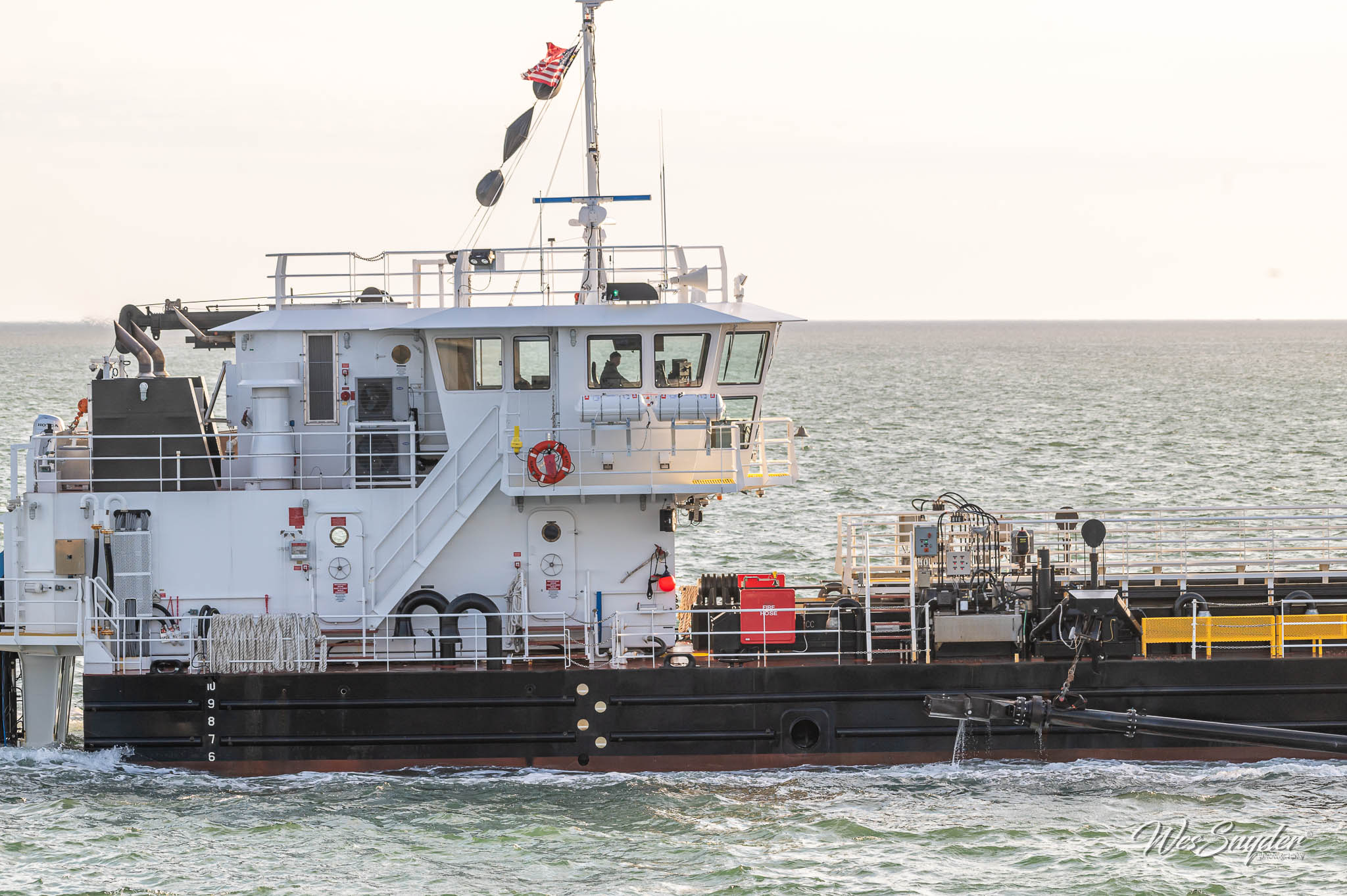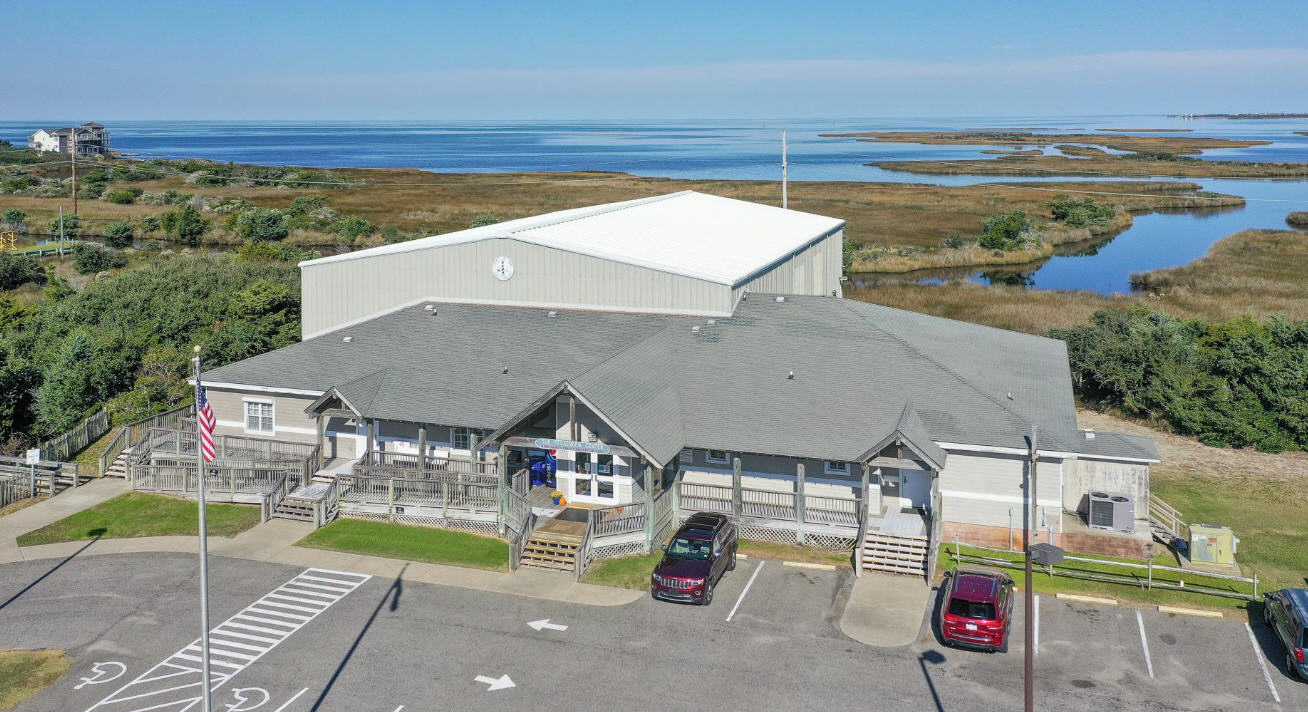Initial Dare County water testing at Buxton Beach results in some good news
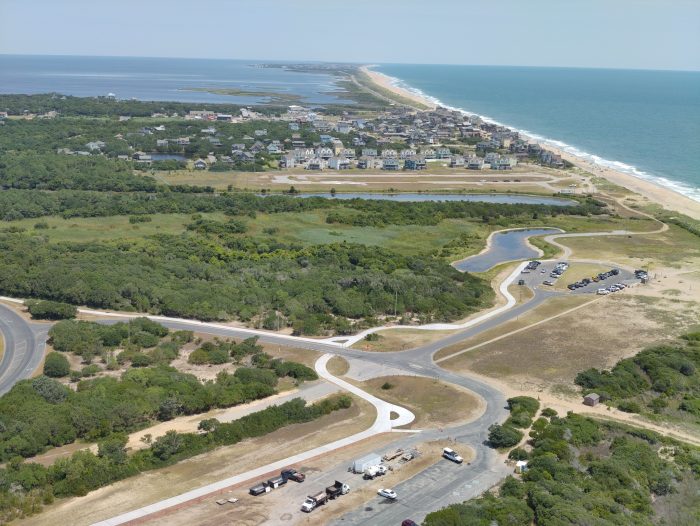
Following a mid-summer push to keep Buxton Beach on the public’s radar, multiple members of the Hatteras Island community spoke out during the public comments section of the Dare County Board of Commissioners’ July 16 meeting, urging the Board to keep the momentum going.
However, County Manager Bobby Outten introduced some good news early on in the monthly meeting, stating that independent testing conducted by Dare County showed no contamination issues with at least one of the interior ponds that are connected to the 50-acre Buxton Formerly Used Defense Site (FUDS).
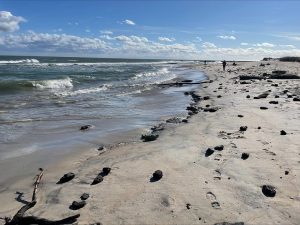
A small 500-yard section of Buxton Beach has been closed since September 2023 after two offshore hurricanes exposed abandoned infrastructure from the site’s 1956-2010 military base, and resulted in reports of occasional petroleum smells in the immediate area during the months that followed.
The consensus by stakeholders is that there are two agencies – the U.S. Army Corps of Engineers (Corps) and the U.S. Coast Guard – who are responsible for the left-behind debris, as well as other potential contaminants. The petroleum smells and petroleum-contaminated soils (PCS) fall under the U.S. Army Corps of Engineers FUDS program, as the former Buxton military base was declared a FUDS site in 1998, while the Coast Guard may be responsible for other contaminants that were left behind when they departed the property in 2010.
Petroleum-contaminated soils have been identified along the oceanfront shoreline in the immediate area through past testing by the Corps and more recent testing by the National Park Service.
A big concern for multiple community members, and particularly members of the Buxton Civic Association (BCA), however, is that this contamination spreads throughout the former military site, into further inland areas and ponds that border Buxton residences.
But as Outten explained at the meeting, according to the first two out of three water testing results, this appears not to be the case.
The testing was conducted by the county in early July and the water samples were examined by an independent analytical laboratory, Environmental Chemists, Inc., based in Wilmington, NC.
In addition to the two Buxton Beach ponds, the main regional water system in Frisco was also tested.
“We got the results back yesterday, and basically, we tested for 15 pages of compounds,” said Outten, referring first to the testing that was conducted in Frisco. “Everything there is below testable levels, so there’s nothing in our groundwater that’s creating any public health concerns… There’s no migration, and [any contaminants] haven’t moved to where we get the groundwater that serves the community.”
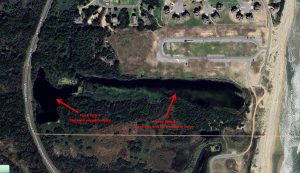
“The second thing that we did is we tested both of the ponds that were on that site, because we had gotten word that some people were concerned,” said Outten, referring to the testing that was conducted at the Buxton FUDS property. “So, we ran the same tests on those ponds as well.”
For the pond closest to the road, there was one small trace amount of acetone, which is a byproduct of runoff from the highway, but nothing that warranted public concern.
“For the pond that’s near the site and near the ocean, the [water sample] vials were broken during transportation, so we’ve sent another set of tests,” said Outten. “We don’t have the test [results] back for that yet, but we will get them back soon, and when we get them, we’ll share those with you.”
“Our biggest concern, while everything needs to be cleaned up and made right, is to be sure we don’t have a public health concern,” added Outten. “And so far so good on that issue.”
Outten also noted that Dare County had not conducted tests on the soil in the area – just the water – and that the county, the National Park Service, and the community were all waiting on results to be returned from the Corps’ latest rounds of soil testing.
“We don’t have those results back, [Cape Hatteras National Seashore Superintendent] Dave Hallac doesn’t have those results back, and he’s been pounding the table trying to get those results,” said Outten. “Everybody’s frustrated, but it’s not from lack of effort. It’s just from lack of response.”
Back in May, an exposed 70-80 foot long pipe that was thought to be at least one source of petroleum was removed by the Corps, and the Corps also performed soil sampling in the immediate area. The data review of the soil samples is in process, and may be available in the next few weeks, or roughly 60-90 days after the original May testing occurred.
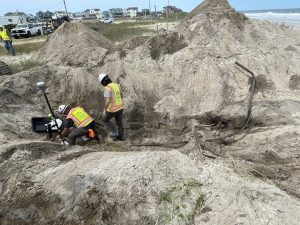
While the Corps waits for test results from the site of the May pipe removal, the agency also sent a team to the Buxton area on June 24-28 to conduct geophysical work in order to identify any potential fuel distribution components, such as pipes or fuel tanks, that still remained under the surface.
“Identifying the anomalies can assist us in determining what areas we need to conduct soil sampling,” said Cheri Pritchard, Media Relations Chief for the Corps’ Savannah District, in an email to the Island Free Press. “The results of the geophysical work will assist with drafting the sampling plan that will be used in the comprehensive sampling efforts. The contract to perform this additional comprehensive sampling work is anticipated to be awarded in October 2024.”
The slow testing process by the Corps and the Coast Guard is effectively what prompted the BCA to urge more public involvement, and to re-launch a letter-writing and email campaign.
“Our next action item is to make some noise again,” said Board Member Heather Gray Jennette at the BCA’s most recent July 11 meeting. “This all started in March, and things seemed to really go somewhere, but now it’s summer, and the beach is covered up again, and everybody’s busy with other things, and we’re waiting on test results because we’re always waiting on test results.”
“Things are happening right now, but it’s a super frustrating ‘hurry-up-and-wait’ process,” she added. “And until they get tired of us beating their electronic doors down, that’s where it’s going to stay. So, what we’re hoping is to have another round of letter writing, email writing, or phone calls.”
Outten assured the BCA and other community members that the need to clean Buxton Beach had not fallen off the county’s radar, and that the county was still pushing for remediation action.
“We’re doing all the things we can do with the agencies that we deal with to try to push this along,” said Outten. “We’re trying to move the needle on this, and trying to get things to happen.”
BCA Board Member Brian Harris also spoke at the Board of Commissioners meeting, after the county’s testing update from Outten.
“We’re continuing to press the Army Corps of Engineers,” said Harris. “ We do know everybody [at Dare County and NPS] is really working on this and that’s great news about the water sample testing.”
“That does bring me to the point that, if we were able to test the ponds and get test results in two weeks, it makes you kind of wonder,” he added. “We’re waiting on reports and testing results from, I believe, October from the Coast Guard, and testing results from the Army Corps of Engineers back in March. The county was able to get them in two weeks… it definitely makes things a little suspect.”
For more information on Buxton Beach
- For sample letter templates to send to the stakeholders involved, click here for a letter template drafted by Deb Hoyt, and click here for the letter template drafted by the BCA. (Click here for the BCA’s letter template in Word format.)
- For a contact list from the BCA, click here. (Click here for the contact list in Word format.)
- For additional letter-writing tips and guidelines stemming from the March email campaign, click here.
- The Buxton Civic Association meets the first Thursday of every month at the old Buxton Volunteer Fire Department building beside Burrus Field. Developing info from the Buxton Civic Association (BCA) can be accessed via the organization’s new website at BuxtonCivic.com or through the BCA’s official Facebook page.
- Remember that while the environmental issues at Buxton Beach are considered to be a public safety and environmental hazard, just three-tenths of a mile of the shoreline is closed, out of 75 miles of National Seashore. In short, the public can still visit and enjoy Buxton, and Hatteras Island in general. The primary concern is that this issue needs to be addressed now, before it potentially becomes a larger problem.
